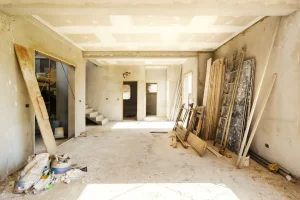Increase in unoccupied commercial properties due to Covid-19

What can be done to remain insured during this period?
If you’re responsible for property insurance, double-check your policy to see what it says about leaving the property unoccupied. Is there anything specific that the landlord or tenant must-do for the policy to be valid?
After 30 days of vacancy, many commercial building insurance policies stop providing full coverage. However, several insurers have stated that this deadline has been extended and/or modified certain rules resulting from the recent events. Therefore, the best course of action is to talk about your options with your insurer or broker as soon as possible.
It is the owner who insures the building in most owner-tenant situations and will have to contact the insurers. However, both parties should carefully read the lease’s insurance clauses. These frequently specify what the tenant must do if they intend to leave the premises, as well as the requirements for both the landlord and the tenant to inform the other. These usually spell out what the tenant should do if they intend to vacate the premises, and they also include responsibilities for the landlord and tenant to keep each other informed of any event that might influence insurance. Tenants may also be forced to reimburse any increase in insurance rates under their lease.
What are the insurance implications of an unoccupied commercial building during the Covid-19?
Concerning empty premises, the Association of British Insurers (ABI) has issued a notice to policyholder indicating that :
“If a business has to temporarily close because of Covid-19, where customers are taking the appropriate steps to mitigate the risk of damage to the property whilst unoccupied, insurers will be flexible around the period of un-occupancy specified on the policy document.
Policies will often include conditions that are intended to ensure good practice in protecting buildings from damage caused by the risk of fire, theft and escape of water, which are often increased when a building is empty. It is important that business owners continue to follow risk management advice and ensure they understand what steps they need to take.
Some insurers have also waived requirements for their business customers to immediately notify them of their unoccupied status, (depending on the individual business circumstances). This should help those customers concentrate on managing their businesses and allow insurers’ call centres to focus on managing the significant number of insurance claims being processed.
If there are any specific requirements as part of your insurance contract that you are unable or unlikely to be able to comply with, such as on-site security, speak to your insurer or insurance advisor/broker.”

Insurance policies for commercial property generally require that the business premises be occupied or that the insured notify the insurer of the property’s inoccupancy for an extended period of time for coverage to be effective. A lot of insurance policies also include guarantees regarding the safety of insured property, such as hiring security guards.
As a result of recent government-mandated business closures, as well as government directives that all employees should do telework if possible, many commercial, retail, entertainment, office buildings, and other establishments will remain vacant.
In any case, it is always necessary to :
Check your insurance coverage to see if there are any exclusions.
Check with your insurer or broker about the application and applicability of the conditions of commercial properties unoccupied during the actual situation.
Make sure that, to the extent possible, you meet any coverages or conditions for risks that are increased when the properties are vacant (e.g. theft, fire, flooding).
Check with your insurer to make sure that failure to respect some conditions like the requirement to have security personnel would not jeopardize your policy.
Continue to monitor the situation as government directions change and evolve; Insurers may treat businesses that are forced to close as restaurants, for example, differently from businesses that choose to close because of government instructions such as offices.
It is still too early to properly estimate the effects of the coronavirus on the coverage of unoccupied commercial properties in the ever-changing world in which we now live and operate. The duration and severity of the outbreak will be critical. Track how the COVID-19 outbreak changes policy and the potential impact on your business and property.







